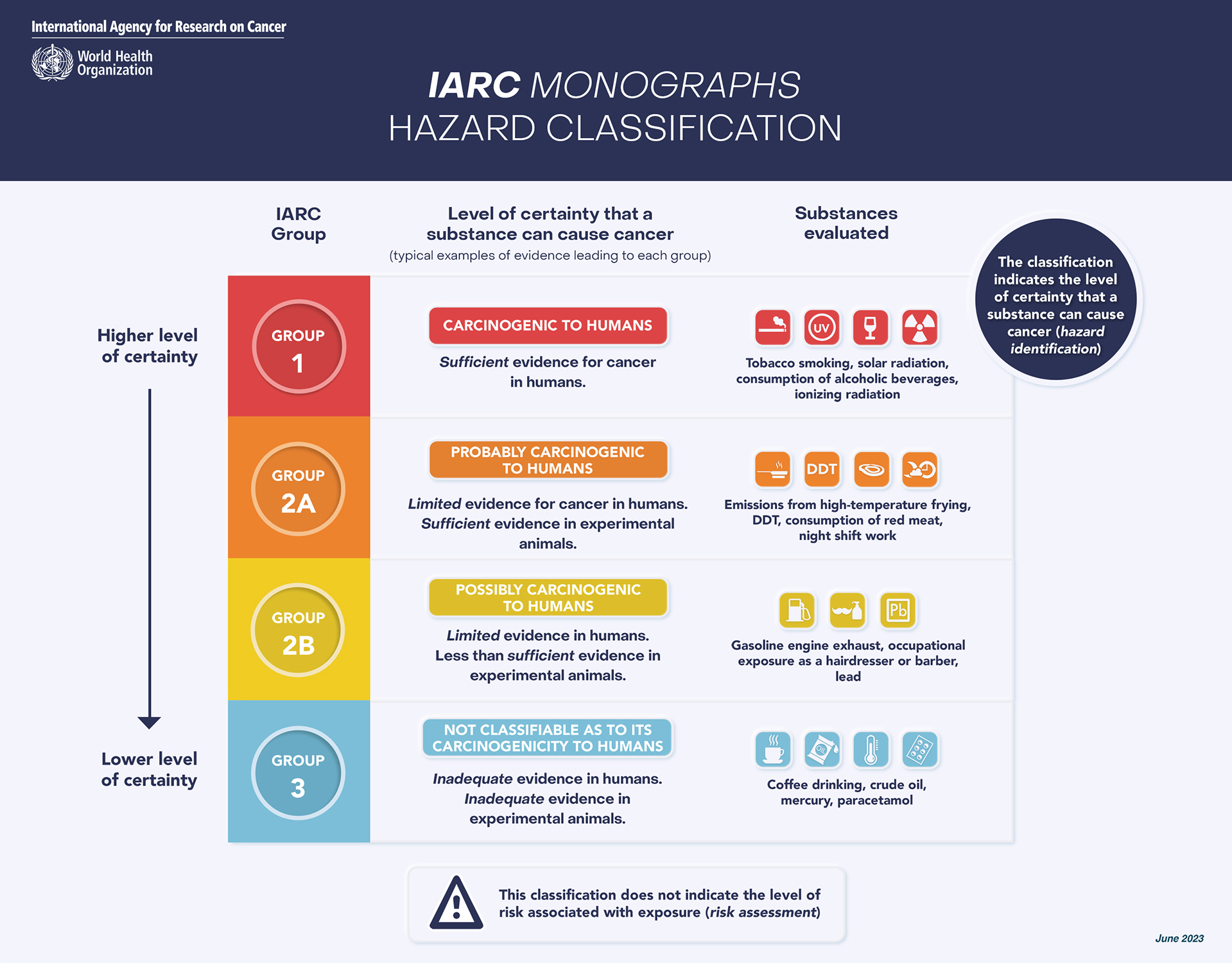
Misleading: Sugar, especially refined sugar, can be harmful to health if consumed in excess. Suggesting that people who eat sugar have historically been “healthier” than those who consume artificial sweeteners gives the false impression that refined sugar can’t do harm.

FULL CLAIM: “Fake sugar is way worse than real sugar. The amount of evidence showing that aspartame causes cancer, obesity, and gut issues is insurmountable. […] People in the 1930s ate cake, cookies, and ice cream with SUGAR. And they were healthy. Artificial sweeteners are poison. They are proven to cause cancer.”
REVIEW
In July 2023, a claim that the artificial sweetener aspartame could cause cancer circulated in media outlets including the New York Times, NPR, and The Economist. This claim appeared to surface in response to a joint press release from the International Agency for Research on Cancer (IARC) and the Joint Expert Committee on Food Additives (JECFA), two agencies of the World Health Organization (WHO).
An Instagram post shared on 16 March 2024 revisited this claim. It claimed that artificial sweeteners are proven to cause cancer and that “fake sugar is way worse than real sugar”.
As we will explain below, there is presently limited support that artificial sweeteners may be carcinogenic. Moreover, sugar can have negative effects on health when consumed in excess.
WHO agencies found limited evidence that aspartame is carcinogenic
In July 2023, two WHO agencies conducted independent reviews evaluating the carcinogenic properties of aspartame. Both agencies—the International Agency for Research on Cancer (IARC) and the Joint Expert Committee on Food Additives (JECFA)—found that there was limited evidence for negative health impacts from consuming aspartame.
More specifically, the IARC classified aspartame in their hazard classification Group 2B, or “possibly be carcinogenic to humans”. For context, there are currently 323 agents classified by the IARC as group 2B hazards. These agents range from aloe vera and engine exhaust to occupational exposures, such as chemicals from dry cleaning or beauty products at hair salons.

Figure 1 – International Agency for Research on Cancer (IARC) group classifications for carcinogenic materials. Source: IARC.
Oliver Jones, a professor of chemistry at the Royal Melbourne Institute of Technology, explained the risk of carcinogens in our daily environment, as well as IARC hazard classifications, in an interview with the Science Media Centre:
“We are all exposed to carcinogens every day. Even things that the IARC classifies as [Group 1] carcinogens, such as UV light and alcohol, do not cause cancer just because you are exposed to them once. For example, if you get too much sun on the beach in summer you might get sunburn but you’ll recover. If you continually sunbathe with no sun protection then your risk of skin cancer goes up.”
A joint report from IARC and JECFA further stated:
“Among the available cancer studies in humans, there were only three studies on the consumption of artificially sweetened beverages that allowed an assessment of the association between aspartame and liver cancer. […] In all three studies, a positive association was observed between consumption of artificially sweetened beverages and risk of liver cancer, either overall or in important subgroups of the studied populations, but chance, bias or confounding could not be ruled out as an explanation for the positive findings.”
Paul Pharoah, a research scientist at Cedars-Sinai Medical Center, clarified the difference between association and causation in an interview with the Science Media Centre. He also commented on the weakness of evidence linking aspartame to cancer. Pharoah said:
“There is weak epidemiological evidence that aspartame is associated with an increased risk of primary liver cancer […] This evidence comes from three studies that have reported an association but there is not much evidence to suggest that the association is ‘causal’ (association/correlation does not necessarily mean causation).
[…] In short the evidence that aspartame causes primary liver cancer, or any other cancer in humans is very weak. This is why it is classified as Group 2B. Other examples classified as Group 2B are extract of aloe vera, diesel oil, caffeic acid found in tea and coffee. Group 2B is a very conservative classification in that almost any evidence of carcinogenicity, however flawed, will put a chemical in that category or above.”
Given this limited evidence, scientists from the IARC commented that more research is needed to better understand whether aspartame poses a carcinogenic hazard.
In a news release distributed by the WHO, Mary Schubauer-Berigan, the head of the Evidence Synthesis and Classification branch at the IARC, said:
“The findings of limited evidence of carcinogenicity in humans and animals, and of limited mechanistic evidence on how carcinogenicity may occur, underscore the need for more research to refine our understanding on whether consumption of aspartame poses a carcinogenic hazard.”
Thus, the amount of evidence showing that aspartame causes cancer is not “insurmountable”, as the post claims. The claim that artificial sweeteners “are proven to cause cancer” is an inaccurate representation of the state of scientific knowledge. Rather, more evidence is needed to support preliminary findings related to aspartame’s carcinogenicity.
Excess consumption of added sugars is harmful to health
Sugar occurs naturally in certain foods like fruit and milk. Sugar can also be added as a sweetener to any number of food products, including beverages, desserts, sweetened coffee or tea, and candies. Common types of added sugars are table sugar, syrups, and honey.
A lot of the added sugar in food like cake, cookies, and ice cream tends to be refined sugar, like table sugar. Refined sugar comes from natural sources like sugar cane, but has undergone a lot of processing so that only sugar remains.
Unrefined sugar, on the other hand, is unprocessed. Examples of unrefined sugar are raw honey and maple syrup.
This brings us to the post’s claim that sugar is a “whole, unrefined food”, which is an inaccurate generalization. As we pointed out above, not all types of sugar are unrefined, and the type found in cake, cookies, and ice cream—as referenced in the post—is typically refined.
Artificial sweeteners, which are sometimes called sugar substitutes or non-nutritive sweeteners, are low- or no-calorie sugar replacements that provide a sweetening effect. They are often made from chemicals in a lab but are occasionally sourced from natural substances like herbs. Specific examples of artificial sweeteners include aspartame (commonly known as Equal or NutraSweet), sucralose (Splenda), and stevia, all of which are mentioned as “poison” in the post.
Artificial sweeteners can be 200 to 700 times sweeter than table sugar, so it’s not necessary to use much to gain the same taste effect as added sugar. This is why artificial sweeteners are sometimes lauded as an adequate substitute for reducing the risk of dental caries and lowering caloric intake—which can reduce the incidence of chronic health conditions including obesity and diabetes.
To this point, the post’s claim that “fake sugar is way worse than real sugar” doesn’t acknowledge that any substance can be harmful in excess, whether it’s an artificial sweetener or sugar.
This claim also disregards the well-documented impact that excess sugar consumption can have on health. Chronic health conditions, including cancer, diabetes, and cardiovascular disease, have been associated with consumption of added sugars[1]. Excess consumption of sugar can lead to obesity, a risk factor for these diseases[2]—which we also addressed in a previous claim review.
In brief, the post’s claim that “real” sugar is not “that bad” for health is ultimately dependent on the amount and type of sugar consumed. Sugar is a necessary part of the diet—in the form of glucose, it fuels cell growth and function, as we explained in a previous claim review. But excess sugar consumption can indeed have damaging health effects.
REFERENCES
- 1 – Gillespie et al. (2023) The Impact of Free Sugar on Human Health—A Narrative Review. Nutrients.
- 2 – Huang et al. (2023) Dietary sugar consumption and health: umbrella review. The BMJ.


